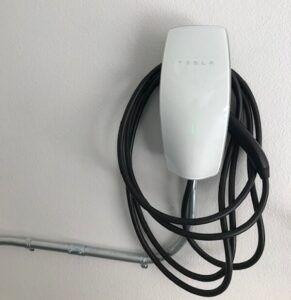Lithium-ion batteries have become an indispensable part of our daily lives, powering everything from smartphones to electric vehicles. But what happens when these batteries are not in use? How do we store them properly to ensure their longevity and safety? Well, worry no more! Here’s a simple yet effective solution on how to store lithium-ion batteries when not in use. By following these guidelines, you can protect your batteries from potential hazards and maximize their lifespan. So, let’s dive in and learn the best practices for storing lithium-ion batteries effectively.
How to Store Lithium-Ion Batteries When Not in Use
Lithium-ion batteries are widely used in various electronic devices because of their high energy density and long-lasting performance. However, improper storage of these batteries can lead to reduced capacity, shortened lifespan, and even safety hazards. In this article, we will explore the best practices for storing lithium-ion batteries when they are not in use. Whether you have spare batteries or need to keep your devices in storage, these guidelines will ensure that your batteries remain in optimal condition.
Why Proper Storage is Important
Before diving into the best practices, let’s understand why proper storage is crucial for lithium-ion batteries. These batteries contain highly reactive materials that can degrade over time if not stored correctly. Here are a few reasons why you should store lithium-ion batteries properly:
1. Longevity: By following the right storage procedures, you can extend the overall lifespan of the battery.
2. Performance: Proper storage helps maintain the battery’s full capacity, ensuring optimal performance when you need it.
3. Safety: Poor storage practices can result in hazardous situations like leaks, overheating, or even explosions. Safely storing batteries reduces the risk of accidents.
Temperature and Humidity Considerations
One of the most critical factors to consider when storing lithium-ion batteries is the temperature and humidity of the storage environment. Extreme conditions can cause irreversible damage to the batteries. Here are some guidelines to keep in mind:
1. Temperature: Store lithium-ion batteries in a cool place with temperatures between 15°C and 25°C (59°F to 77°F). Avoid exposing batteries to excessive heat or freezing temperatures, as it can lead to capacity loss or even failure.
2. Humidity: Lithium-ion batteries should be stored in a dry environment to prevent moisture damage. Excessive humidity can cause corrosion and compromise the battery’s performance. Aim for a relative humidity level below 65%.
3. Avoid Temperature Cycling: Rapid temperature changes can cause the battery to expand and contract, leading to internal stress and degradation. Avoid storing batteries in places with fluctuating temperatures, such as near windows or outside.
Charge-Level for Storage
The charge level at which you store lithium-ion batteries can significantly impact their overall health. Here’s what you should do:
1. Partial Discharge: For long-term storage, it is recommended to partially discharge the battery to about 40% to 60% of its capacity. This level ensures that the battery remains stable during storage without dropping to critically low levels.
2. Avoid Full Discharge: Storing lithium-ion batteries in a fully discharged state can lead to capacity loss or even irreversible damage. It is crucial to avoid completely draining the battery before storage.
3. Check Battery Levels Regularly: If you plan to store batteries for an extended period, it is advisable to check their charge level periodically and recharge if necessary. This practice helps maintain optimal charge levels and prevents self-discharge.
Storage Containers and Conditions
Proper storage containers and conditions play a vital role in ensuring the safety and longevity of lithium-ion batteries. Here are some recommendations to follow:
1. Non-Conductive Containers: Store lithium-ion batteries in non-conductive containers, such as plastic or cardboard boxes, to prevent accidental short-circuits. Avoid using metal containers that can conduct electricity.
2. Individual Wrapping: If storing multiple batteries together, wrap each battery individually in a material that prevents contact between them. This step helps minimize the risk of short-circuits in case of accidental battery damage.
3. Avoid Extreme Pressure: Do not stack heavy objects on top of stored batteries, as it can lead to physical damage or deformation. Keep the batteries in a secure and stable location to avoid unnecessary pressure.
4. Ventilation: Ensure proper ventilation in the storage area to prevent the buildup of gases and heat. Good airflow helps dissipate any potential heat generated by the batteries.
Regular Maintenance and Usage
Even when not in use, lithium-ion batteries require occasional maintenance and usage to keep them in top condition. Follow these guidelines to ensure their longevity:
1. Keep Batteries Charged: If you are storing batteries for a long time, it is advisable to charge them to the recommended charge level every three to six months. This practice helps prevent capacity loss and maintains overall battery health.
2. Use Batteries Periodically: Unused batteries can lose capacity over time. To prevent this, utilize the stored batteries in electronic devices from time to time and recharge them as needed.
3. Follow Manufacturer Guidelines: Always refer to the manufacturer’s instructions for specific storage recommendations for your lithium-ion batteries. Different battery models and brands may have specific requirements that are essential to follow.
4. Dispose of Damaged Batteries: If you notice any signs of damage or swelling in a lithium-ion battery, it is crucial to dispose of it properly. Damaged batteries can pose safety risks and should not be stored.
Proper storage of lithium-ion batteries is essential for longevity, performance, and safety. By considering temperature and humidity, maintaining optimal charge levels, using suitable storage containers, and following occasional maintenance practices, you can ensure that your batteries stay in excellent condition, ready for use whenever you need them.
Remember, taking care of your lithium-ion batteries not only prolongs their lifespan but also contributes to a safer and more efficient use of electronic devices. Following these guidelines will help you reap the maximum benefits from your batteries and minimize the risk of potential issues.
Frequently Asked Questions
How should I store lithium-ion batteries when not in use?
When storing lithium-ion batteries, it is important to follow certain guidelines to maintain their performance and lifespan:
What should be the ideal temperature for storing lithium-ion batteries?
The ideal temperature for storing lithium-ion batteries ranges between 20°C to 25°C (68°F to 77°F). It is crucial to avoid extreme temperatures, as both low and high temperatures can negatively impact battery performance and capacity.
Do I need to fully charge or discharge a lithium-ion battery before storage?
No, you don’t need to fully charge or discharge a lithium-ion battery before storage. In fact, it is recommended to store them with a charge level between 40% and 60%. This level helps to minimize stress on the battery and prevent it from self-discharging completely during storage.
Should I remove lithium-ion batteries from the device when not in use?
In general, it is not necessary to remove lithium-ion batteries from the device when not in use. However, if you plan to store the device for an extended period without use, it is advisable to remove the battery, ensure it is properly charged, and store it separately in a cool and dry place.
How should I physically store lithium-ion batteries?
Store lithium-ion batteries in a cool and dry environment, away from direct sunlight, moisture, and extreme temperatures. To prevent any potential short circuits, it is crucial to store them in an insulated container or cover the battery terminals with tape to avoid contact with conductive materials.
Is there a recommended storage duration for lithium-ion batteries?
Lithium-ion batteries can generally be stored for an extended period without significant degradation. However, it is recommended to use or recharge them at least once every three to six months to prevent excessive self-discharge and maintain optimal performance.
Final Thoughts
When not in use, proper storage of lithium-ion batteries is crucial to preserve their performance and prolong their lifespan. To store lithium-ion batteries effectively, ensure they are half-charged, as fully charged or discharged batteries can be more prone to degradation. Store batteries in a cool, dry place, away from direct sunlight and extreme temperatures. It is advisable to use a specialized battery storage container or a non-conductive bag to prevent contact with metal objects that may cause a short circuit. Remember to periodically check the battery’s charge level and recharge it if it drops below 40%. By following these guidelines, you can ensure the longevity and optimal performance of your lithium-ion batteries.



